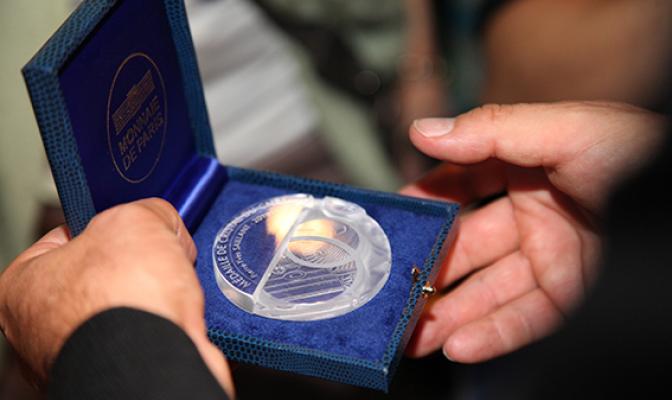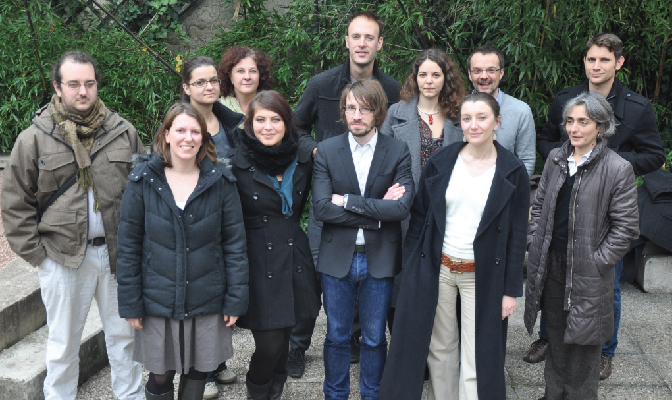Since 2011, the Equipex DIME-SMS team has innovated to establish new research tools. After operating for 7 years, it has now begun the last step of its cycle.
On September 28th, 2018, the DIME-SHS conference entitled “Tools to conduct research in Social Sciences” will make sharing analyses and results from equipment-tools data possible.
Programme
9h30 - 10h00 / Introductory lecture
Replication, reuse and crossing of the corpus : challenges and opportunities for DIME-SHS
- Nicolas Sauger, DIME-SHS scientific director, CDSP director)
10h00 - 10h45 / Co-producing data for research with ELIPSS
Daily national mobility panel : first results of a longitudinal survey - first wave
- Thomas Buhler, lecturer at the University of Franche-Comté
- Philippe Signoret, research engineer at the University of Franche-Comté
Understanding the representation of territorial networks : GlobalMap, first results and methodology
- Claude Grasland, Professor at the University Paris Diderot
- Clarisse Didelon-Loiseau, Professor at the University Paris 1 Panthéon-Sorbonne
11h00 - 11h45 / Reuse qualitative datas for research and teaching
Reuse qualitative datas to study the “European integration paradox” :
- Anja Thomas, associated PhD at CERI
Teaching with pre-existing qualitative datas
- Christophe Giraud, Professor at the University of Paris Descartes
Using Hyphe in social sciences
- Benjamin Ooghe-Tabanou, research engineer at Médialab, and Manager of the Dime Web tool
Controverses tools regarding vaccines
- Jérémy Ward, research associate at LIED PIERI and research engineer at ORS-PACA
- Paul Guille-Escuret, PhD student at the University Paris Sorbonne
- Florian Cafiero, associate researcher at l’Ecole des Chartes
- Claire Levallois Barthes, Law lecturer at Télécom ParisTech, ‘Values and Personal Data Policy chair’ coordinator
- Daniel Bizeul, associate researcher at Crespaa-CSU and Professor at the University of Angers
- Céline Alazard, archivist and “Archives, Documentation, Digitization” technological platform manager at the University of Bourgogne
- Emilie Masson, legal expert and member of the Computing and freedom correspondent team at the CNRS
15h45 - 17h15 / panel discussion “textual analysis as a back-up for data mining”, moderated by Jean-Philippe Cointet (researcher at Sciences Po’s Médialab)
- Dominique Labbé, associate researcher at PACTE
- Maxime Crépel, research engineer at Medialab, and Diego Antolinos-Basso, data-mining developer at CEVIPOF
- Florent Gougou, lecturer at Sciences Po Grenoble, and researcher at PACTE
Public
The DIME-SHS conference entitled “Tools to conduct research in Social Sciences” aims to reach a large audience amongst those who use social sciences data :
- Researchers and professors
- Researchers, users, people interested in and curious about DIME-SHS tools and the data they produce (research teams, professors etc.),
- engineers specialized in production, information processing, analysis and representation of Social and Human Sciences research data,
- students who wish to engage in research,
- PhD students interested in data analysis methods,
- multidisciplinary project developers,
- Data-use training manager.
The DIME-SHS conference “Tools to conduct research in Social Sciences” is free and open to all after registration. You can sign up here.
The DIME-SHS conference “Tools to conduct research in Social Sciences” will be held at the Société Nationale d’Horticulture de France, at 84 rue de Grenelle, 75007 Paris



